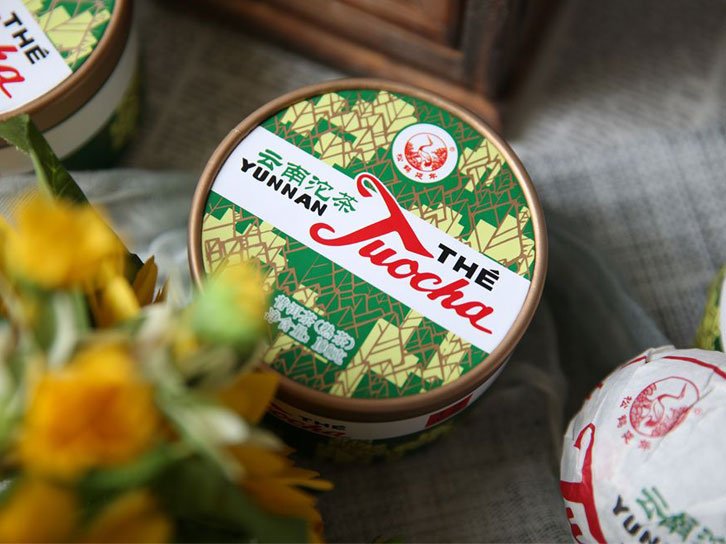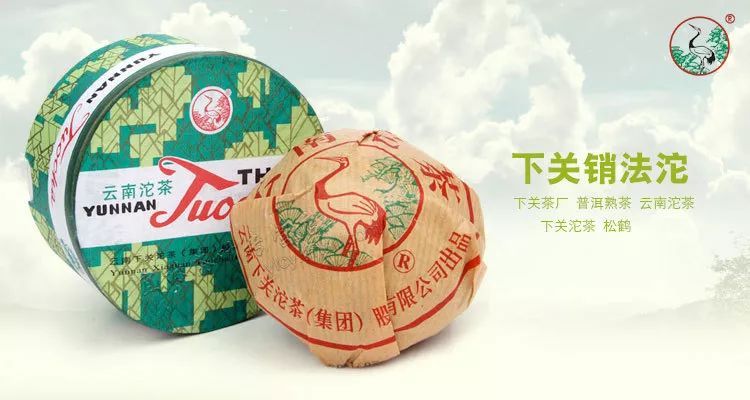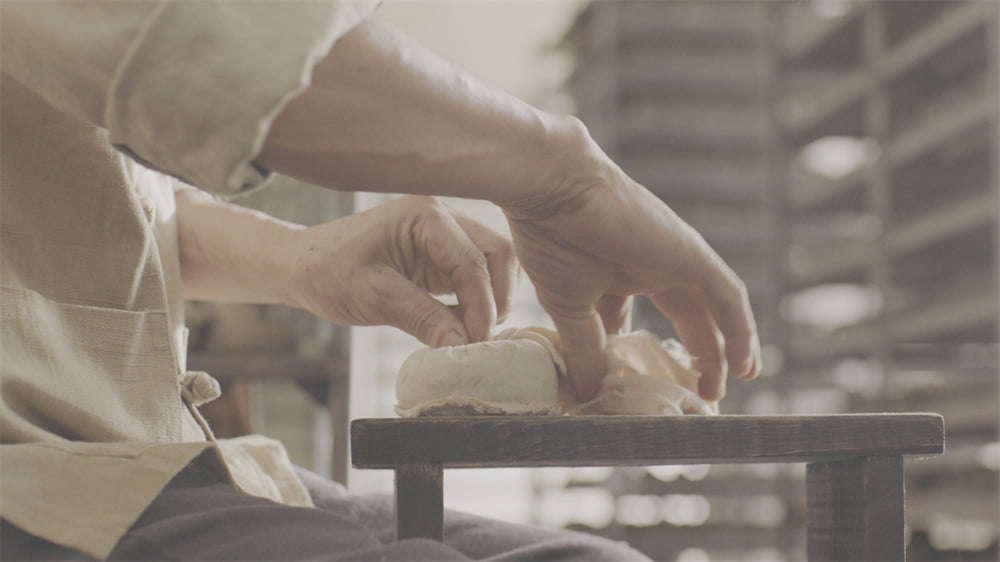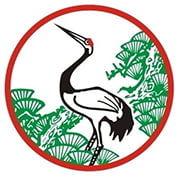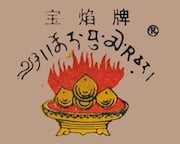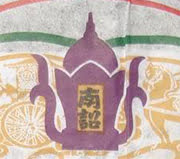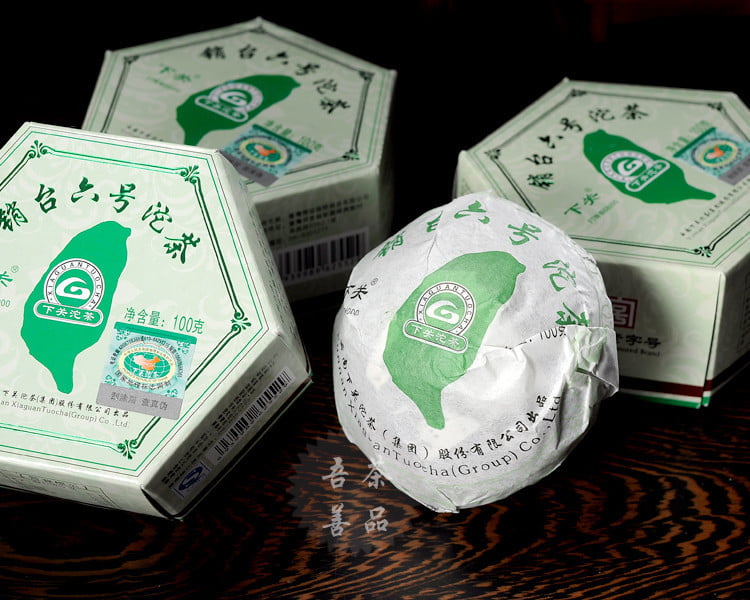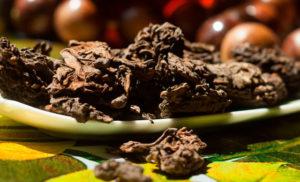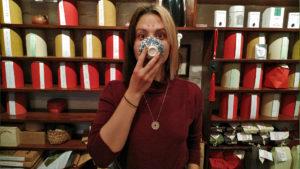Xiaguan (下关) is a puerh factory that has become famous for producing Tocha (bowl or nest shaped) Puerh tea. Xiaguan products are constantly exported overseas, and the popular Tochi (nest-shaped) pressing of tea leaves has become a classic and is in the position of the most exported tea from Yunnan. Xiaguan factory currently employs about 400 staff. The factory produces more than 6,000 tons of tea every year and has more than 60 kinds of tea products.
Many Xiaguan Puers have gained widespread popularity and international fame. To have a Xiaguan Tocha from the 70s-80s in the original box with the word “Yunnan” on the front is probably every collector’s dream. Perhaps the Tocha pressed Puers epitomize the past and antiquity of tea culture just as much as any other classic Qi Zi Bing Puer.
The Xiaguan factory was founded in 1941 under the name Kang Tsang Cha Chang ( 康藏茶厂 – Kang Tsang Tea Factory). Like traders of the past who transported tea on horseback across China and beyond, Xiaguan traditionally shipped tea to remote areas of Tibet. The mushroom-shaped pressed tea was produced under the brand name “Bao Yan” ( 宝焰 – Sacred Flame), which was so famous among Tibetans that it is often referred to as “Tibetan Puer”. Its beautiful territorial location (just above the western part of Yunnan Province in Dali County) holds wonderful views, clean air and water. The city of Xiaguan is in a place surrounded by mountains, and two wind streams create in their unity the famous “Xiaguan Winds”, which allow the factory to dry the manufactured tea with them.
In 1950, the factory changed its name to Xiaguan Tea Factory. In 1955, the factory took over several local tea factories, merging them all into one company (thus obtaining the rights to all known private brands in Xiaguan), increasing production volume several times and expanding the range of Mao Cha (毛茶 – raw tea) to a great extent. Traditional Xiaguan Mao Cha is a sun-dried tea with partial fermentation. It goes through the basic stages: picking, wilting, green fixing (Sha Qing), twisting, sun-drying. Mao Cha as a beverage is quite complete, and it is ready to drink under the name of loose Sheng Puer. However, such Mao Cha is mainly used to make pressed Sheng and Shu Puers and therefore undergoes additional necessary stages. Mao Cha can also be purchased from various factories that harvest tea from their plantations. These factories, in turn, may not produce any particular Puerh, but specialize exclusively in the collection and primary processing of raw materials, reselling Mao Cha to other factories that have already completed the manufacturing process and produce finished products. Thus, after the merger of several tea factories, the Xiaguan factory has ensured itself even greater variability in the variety and diversity of raw materials for the manufacture of tea according to its recipes.
At the same time as expanding the range, the factory also continued to maintain the traditional production of classic recipes. This is confirmed by many tea experts, who agree that the blends (recipes), aroma, flavor and quality have all been maintained at a consistently high level in a more holistic and systematic manner than other Puerh factories. In the 1990s, Xiaguan Brewery became a second-class state-owned enterprise. At that time, Xiaguan’s annual production exceeded that of any other tea factory in Yunnan Province. In 1994, expansion efforts continued with a merger with several other factories, and the factory acquired a different official name, which has been retained to this day, Xiaguan To Cha 下关沱茶 (Xiaguan Tuo Tea Ltd.). Since then, the factory has doubled the list of products, while increasing the production of the tea that was previously made.
Today, the most common teas are mushroom pressed 250 grams, nest-shaped Tocha pressed 100 grams, and all are categorized by quality grades. These Tocha age quite slowly and this is due to the very strong and dense pressing of the leaves. Xiaguan Tocha are known for their delicate flavor, with a slightly smoky aftertaste. The crane depicted on one of the logos has always been a favorite of many puerh collectors. Consistency of flavor has been strived for by the Xiaguan factory over several years of operation and the multifaceted permanence is perhaps best revealed in pressed Tocha. Many Xiaguan pancakes from the 1970s and 1980s, often referred to simplistically as Te Bing (铁饼 – iron pancake), are always at the top of the superb aged Sheng Puers to which the tea collector’s mind turns. The products of this factory are highly prized among collectors also because they use their own raw materials.
Today, Xiaguan Factory produces pu’erh under several brand names:
松鹤 (from Chinese. Sunhe – “Pine and Crane”, which in Chinese tradition is considered a symbol of longevity): products for the domestic market, including mainly tocha and bingcha puerhs. This brand of puerh has won three silver medals at international fairs since 1980, and since 1997 has won the highest award, the gold medal, three times at international food fairs.
宝焰 (from the Chinese Bao’an, “Precious Flame”): products for the Tibetan market, including mainly jingcha (mushroom-shaped) and mini bingcha (200-gram pancakes) puerhs.
南诏 (from Chinese. Nanzhao – “Southern Zhao” 629-13S2. A dynasty and state in what is now the province of Yunnan. Yunnan): products for the Taiwanese market, including mainly tocha and bingcha puerhs. G (Xiaguan Factory Logo): Capitalized “G”, used for small, “collectible” batches of puerhs. Sometimes, the “G” symbol is put additionally on the other brands. This symbol is also embossed on all tochas produced by the factory.
马背 (from Chinese Mabei ), which literally translates to saddle a horse): a new Xiaguan brand (since 2005).
Among the firm’s specialty products, FT (Fei Tai) – “Fei Tai” – is also noteworthy. For this production, Xiaguan had to cooperate with another firm. Only the highest quality raw materials were used during production: high quality early spring tea and spring water from Qangshan Mountain for pressing. The result was a collector’s tea, the quantity of which was limited. This tea has made its way into the most expensive tea collections around the world. There are a lot of replicas of this brand being sold now.
